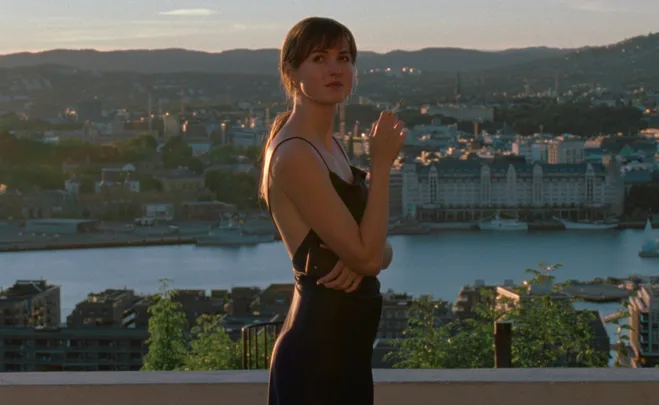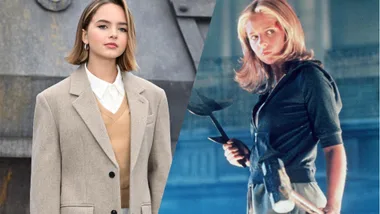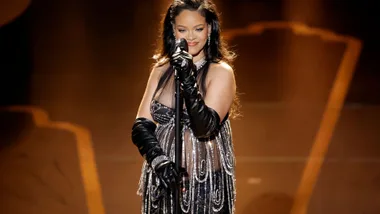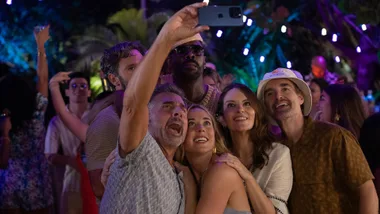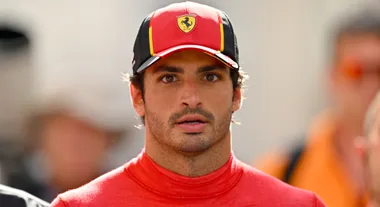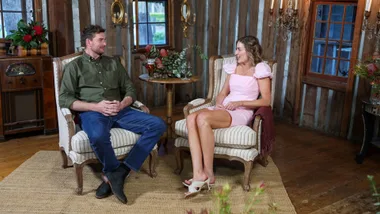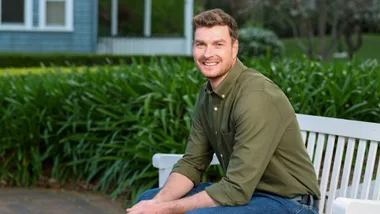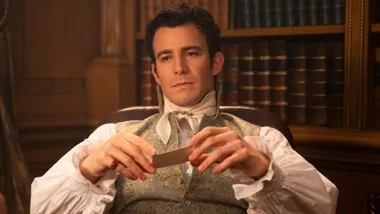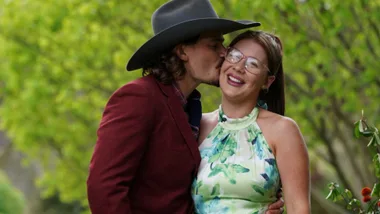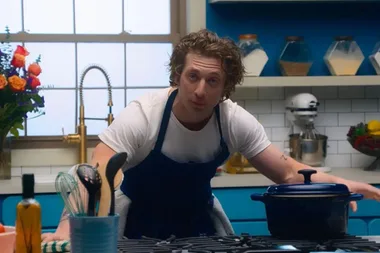There are few films out right now that will have you experiencing the broad spectrum of emotions conjured by The Worst Person in the World. Directed by Joachim Trier, it will have you laughing, crying, feeling confused, triumphant and maybe a little more comfortable with yourself than when you entered the cinema.
At the centre is Renate Reinsve as Julie, a thirtysomething women roaming around Oslo, cycling through jobs, aspirations and partners, restless about her restlessness. Is she making the right decisions? Should she be more attracted to certainty and stability? Is she the worst person in the world? These questions and more are explored throughout the film as we follow Julie, who doesn’t really know what she wants, but do we ever?
Trier wrote the film specifically with Reinsve in mind after working with her on his previous film, Oslo, August 31. Her performance is one of the best this year, earning her the Best Actress award at the Cannes film festival, and renders Julie wholly relatable.
Here, marie claire talks to Reinsve about the response to the film, Julie’s insightful indecision and how the film taught her to accept the messiness of herself – and others.
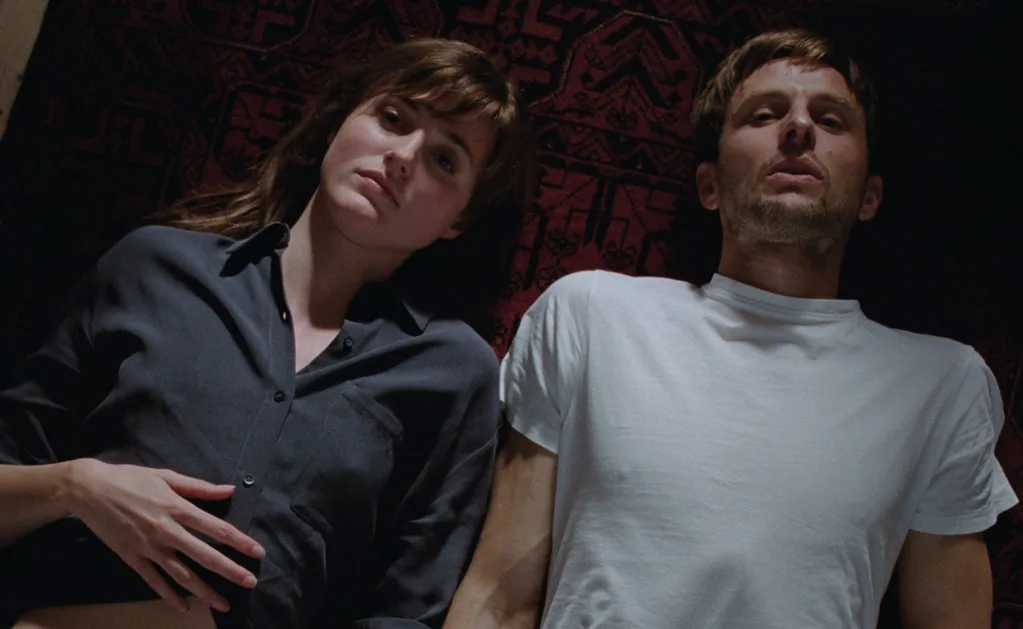
marie claire: I was talking to my friends about the film the other day and one of them really wants to see it. And she said, “What did you think? So-and-so didn’t love it because she doesn’t like sad movies and she got really sad”. And I thought, that’s so funny because a lot of people are calling it a rom-com, but there are definitely elements of melancholy. It’s a great film and it seems what you take from it will depend on where you’re at with life. Has that been your experience of how people have responded to it?
Reinsve: Oh, yeah. The first journalist I met after showing it in Cannes, which was really the first audience I ever talked to that I didn’t know, and she was around 45 and she was almost angry. She was like, “How come you, a 30 year old, can tell my story? This is me. This is mine.”
And then I was like, “Okay, I have to recalibrate. Okay, this is something, right? This is what we made a movie about.” And then we talked about her impression and her themes.
And then the next journalist I met, she was 30, and she was like, “This is me. This is my film. This is about me.” And it was completely different. And then the next one was a guy, 20 or something, and he was like, “This is me. This is me. Julie is me.”
So I feel like everyone I’ve met has a different angle. It hits them differently. It’s just the biggest compliment also, because we felt that the script and the production, when we were in it, we felt we made something important for us, but we felt like it was almost so personal for everyone on set.
We were such a collective, everyone had their favourite moment and their favourite scene, but we felt like, “Are we just making this for us?” Then when we released it, it just exploded, and so many people connected to it. And really, people were running after us in the street in Cannes because they had such a big experience with the movie. So it’s been fantastic.
mc: It’s such a special film, because it does feel like a time capsule, almost, in that it touches on very topical themes, the decision to have children amid climate change, etc. But it’s also, at the root, quite timeless. Speaking of Julie, I mean, and people obviously resonating with her so deeply, Joachim wrote the film around you and went into it writing that character for you. When you read the script, did you recognize her immediately?
Reinsve: Oh yeah, absolutely. I was very nervous. So, there was a lot of tension already, because he told me he wrote this for me and also, it’s two men writing a female character. I was very nervous, actually. Joachim was also very nervous and very humble about doing the same thing. So we were both nervous. But I think I cried three times before page seven because it just…When I read the script, it was her getting really sad about not being able to be there for her boyfriend when he gives out the comic book, and feeling really sad for where she was in life.
And what she does to get away from her own emotion is sneak into a wedding and just flirt with another guy. And it was so destructive, so self-destructive and so much fun. And I was like, “Okay, I love this girl.”
I could see that it was drama and it was levity and fun, and it went so many places and every scene was so rich. I couldn’t really figure out exactly who she was because she was so complex.
So I thought, “This could go so many places.” I really related to her, but I felt like, “This is not only me. This is going to be more people relating to this character.”
mc: Yeah. On that point of Joachim and Eskil [Vogt] writing it, there’s a world in which this film got made and Julie as a character was way more two-dimensional, like this manic pixie dream girl who doesn’t know what she wants. And it wasn’t like that, there’s so much depth to her. I read an interview where you said you were worried about them writing it, and then you read it and that dissipated. You also said that there were certain things that you went into the project wanting to apply, what were those?
Reinsve: In the script, it was more that Aksel saw her and that was a romantic thing, but I wanted that to be a problematic thing, that Julie was so desperate to be seen because she couldn’t see herself and accept herself that she kind of went into the relationship to get acceptance. Because she loved the way he saw her.
That’s also paradoxically why she has to leave, because she doesn’t want to be defined. I don’t think it’s conscious for her, but I think in a subconscious way in her trying to figure out what is going on in her life and the social structures that she’s in, that’s why she takes that choice of leaving him in the end.
I also felt that Aksel was the strong one in the relationship because he could put everything he thought into words, he could categorise what he was going through, analyse everything and be very clear and on top of the situation because of that.
But I wanted that chaos and confusion and vulnerability to be a strong place for her, because you can’t really start anything without really being honest with the fact that you don’t know anything, and admitting you’re in a weird, hard place.
If you are in that place and you try to overrun that by being sure about things and just taking a choice without standing there and being vulnerable, then you have lost. Being vulnerable is a very strong place to be. So those two things were my perspectives that were very important to get in. But apart from that, we were very aligned on everything, really.
mc: I loved what you said about vulnerability is strength, but I also think Julie, for as much as she doesn’t know what choices she wants to make or was confused about things, there’s a wisdom in her knowledge that that’s actually a sign she’s on the right path. She knows herself probably on a deeper level than most people do, because, as you say, they might react by just postulating that they know or whatever.
Reinsve: Exactly. That’s a very good point. I feel, yeah, exactly that. That’s a very good point. Write that. Write what you said.
mc: Another facet that I loved about the film and the characterisation of Julie is her sexuality. When I went to describe it initially, I was like, “Her sexuality is almost masculine.” But it’s not that it’s masculine, it’s that I don’t think we’re still yet at the point of seeing a woman in a film where she is just so in control. And it wasn’t even really a big deal. Throughout it all, her sexuality and her control of that felt quite stable, amid everything else. And I love that the sex scenes told you something about the relationships. What kind of conversations did you have with Joachim around developing that approach?
Reinsve: Well, we talked very early on that it was a cool thing to see a girl being very sexually liberated and that there wasn’t any shame connected to her sexuality, that she was very free.
And for Joachim, it’s very important that every sex scene also is like a conversation, like they tell a story about the relationship or the situation that she’s in. When you see her in the sex scene with Eivind for the first time, she is… I can understand why you might say masculine, because she is the one looking, she’s biting his ass, she’s climbing over him to get a look at his bum because she wants to see him. You don’t often see that.
And that tells the story that she came out of a relationship, it was more intellectual, it was more steady and grown up. But now she’s in this raw moment, just being in her body, just being in a different relationship, it’s what she needed.
mc: And each sex scene had its own dramaturgy, right?
Reinsve: Yeah, and they were like a dance. They were planned very thoroughly. Joachim directs the sex scene as he would direct another scene, but I guess it’s very sensitive, so he has to be more thorough and it has to be well planned.
mc: Speaking of sensitive and well planned, and one of my favourite scenes all year, and I’m sure you keep getting this, is obviously the mushroom scene, when she flings the tampon in her shitty dad’s face. It’s an interesting scene because I know when I was watching it, my initial reaction was like, “Oh,” and then kind of triumphant in this weird way. And then I did a double take when I was thinking about it later. And I was like, “Is that just a sign that periods and period blood is still so taboo?” What purpose did you see that scene serving?
Reinsve: I had the same reaction as you. I was like, “Oh,” when I read it. Like, “Whoa. Yeah, let’s do this. This is interesting.”
But I guess it’s also like the mushroom scene is Joachim’s love for cinema. He loves to play with the form and how to stage the subconsciousness. So you actually get to go into Julie’s subconscious with that scene.
And it’s just like something psychological, Freudian, about throwing your menstrual blood in your dad’s face. It’s just, we haven’t seen that before. But it links to Freud in some way, doesn’t it? It’s just a really humoristic way. And Joachim, I know he’s very into Freud and all his Oedipus complex and everything. So I think it just a twist. He does twists on all those things in this film. Yeah.
mc: Were there many takes to get the scene?
Reinsve: No, it took two takes. Because the second time, the tampon just hit him straight in the face and we’re like, “We can’t get that any better.” Because it was straight in his face.
mc: You’ve said you learnt a lot about yourself doing this film, and it clearly was such a personal experience. Could you talk a little bit about what you learnt?
Reinsve: I guess for me, a part of me is loneliness and shame and sadness and I had a hard time accepting who I am in different ways. I always thought I would run away from that.
But through doing this film, it was kind of liberating to just… I guess just the film taught me life is just chaos and everyone has those sides and everyone feels like that in some ways. And it doesn’t mean that there’s anything wrong with you, it’s just very natural to have all those sides.
We’re supposed to be so perfect all the time, we’re supposed to look our best and think the best thoughts and be the smartest and be the coolest, it’s too much pressure.
So it’s a very important lesson about everyone being messy and ugly and not polished and they do the wrong stuff and they mess up and they feel shitty about themselves and it’s okay. Life is like that. It goes up and down. So I guess that’s just made me relaxed in being who I am.
The Worst Person in the World is in cinemas now.
